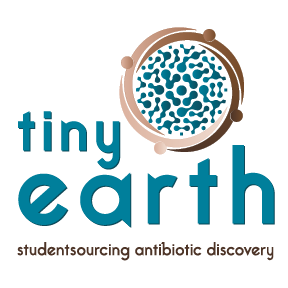Welcome
Our community’s Annual Symposium will take place at the University of Wisconsin-Madison’s Discovery Building on June 21 and 22, 2018 (plan to travel to Madison on June 20). The 2018 Symposium will feature our annual poster competition, highlight innovative research and discovery across our community, and serve as a connection hub for Tiny Earth’s student-scientists and implementing instructors. The Symposium is jam-packed with opportunities for students, instructors, and other supporters to take our program to the next level. We are pleased to partner with Wisconsin Athletics to explore the impact of antimicrobial resistance on collegiate athletes and athletics.
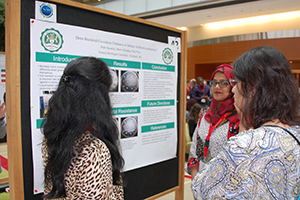
The Symposium will feature guest speakers from different antimicrobial resistance-relevant backgrounds. Attendees will hear from leaders across industry, academia, and healthcare. The program will include “tapas talks”, a series of short presentations on an exciting array of topics, from new lab methodologies implemented in Tiny Earth courses to special projects that extend our reach beyond the university classroom. After a catered lunch and keynote address, the annual poster competition will commence. Day 1 will conclude with a fun reception dinner for Symposium attendees.
On Day 2, attendees will choose to start their day with a program either at a Madison-based life sciences biotech company or on campus at Camp Randall, UW-Madison’s Division I football stadium and training facility, with UW-Athletic trainers, doctors, and student-athletes. By midday, Symposium attendees will reconvene at the Discovery Building for lunch and the Tiny Earth Career Expo featuring representatives from graduate schools, professional schools, life sciences companies, and biotech firms. The Symposium will conclude with an award ceremony and closing remarks.
Past Events
Speakers
 Aileen Rubio, PhD, is the Head of Biology for Spero Therapeutics in Cambridge, MA. She previously held positions of increasing responsibility at Cubist Pharmaceuticals, where she worked for over 9 years. During that time, she worked on antibacterial discovery projects, as well as provided support for business development activities. She has also collaborated with several key opinion leaders to investigate the mechanism of action/resistance of Cubicin (daptomycin for injection) in Staphylococcus aureus.
Aileen Rubio, PhD, is the Head of Biology for Spero Therapeutics in Cambridge, MA. She previously held positions of increasing responsibility at Cubist Pharmaceuticals, where she worked for over 9 years. During that time, she worked on antibacterial discovery projects, as well as provided support for business development activities. She has also collaborated with several key opinion leaders to investigate the mechanism of action/resistance of Cubicin (daptomycin for injection) in Staphylococcus aureus.
Dr. Rubio received BS degrees in both Microbiology and Chemistry from the University of Illinois at Champaign-Urbana, a PhD in Bacteriology from the University of Wisconsin at Madison and completed post-doctoral research at the University of California at San Diego.
 Michael Lewinski, Ph.D., D(ABMM), CM, MB(ASCP)CM is currently the Sr. Director of Medical Affairs, Microbiology and Smarticles technology at Roche Molecular Systems, Inc. in Pleasanton, California. He completed his Doctor of Philosophy degree in Microbiology and Immunology and a clinical postdoctoral Fellowship in Medical and Public Health Laboratory Microbiology at UCLA. He is a Diplomate of the American Board of Medical Microbiology, a licensed Laboratory Director and a certified Molecular Biologist. Prior to joining Roche, he was the Chief of Microbiology and Associate Clinical Professor of Pathology and Laboratory Medicine, David Geffen School of Medicine at UCLA. Prior to UCLA he was the Senior Scientific Director of Infectious Diseases at Quest Diagnostics Nichols Institute and Focus Diagnostics, Inc. He has served as the President of the Southern California Branch of the American Society for Microbiology, on the Council of the Pan American Society of Clinical Virology and as Chair of the Infectious Disease Subdivision of the Association for Molecular Pathology and he currently serves on the Membership/Nominations Committee of the Pan American Society for Clinical Virology and the Editorial Board of the Journal of Clinical Virology. His research interests have focused on the development and the automation of molecular tests for the detection, quantification, and characterization of microorganisms for the diagnosis of disease and for monitoring disease progression and response to therapy. He holds several patents and has published in various disciplines within infectious diseases and laboratory medicine.
Michael Lewinski, Ph.D., D(ABMM), CM, MB(ASCP)CM is currently the Sr. Director of Medical Affairs, Microbiology and Smarticles technology at Roche Molecular Systems, Inc. in Pleasanton, California. He completed his Doctor of Philosophy degree in Microbiology and Immunology and a clinical postdoctoral Fellowship in Medical and Public Health Laboratory Microbiology at UCLA. He is a Diplomate of the American Board of Medical Microbiology, a licensed Laboratory Director and a certified Molecular Biologist. Prior to joining Roche, he was the Chief of Microbiology and Associate Clinical Professor of Pathology and Laboratory Medicine, David Geffen School of Medicine at UCLA. Prior to UCLA he was the Senior Scientific Director of Infectious Diseases at Quest Diagnostics Nichols Institute and Focus Diagnostics, Inc. He has served as the President of the Southern California Branch of the American Society for Microbiology, on the Council of the Pan American Society of Clinical Virology and as Chair of the Infectious Disease Subdivision of the Association for Molecular Pathology and he currently serves on the Membership/Nominations Committee of the Pan American Society for Clinical Virology and the Editorial Board of the Journal of Clinical Virology. His research interests have focused on the development and the automation of molecular tests for the detection, quantification, and characterization of microorganisms for the diagnosis of disease and for monitoring disease progression and response to therapy. He holds several patents and has published in various disciplines within infectious diseases and laboratory medicine.
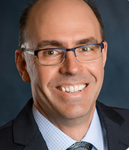 Greg Bleck is Global Head of Research and Development at Catalent Biologics with overall responsibility for development and acquisition of new products and technologies. Greg was an original employee of Gala Biotech (acquired by Catalent), where he used his knowledge of gene expression and transgenic systems to develop and optimize retrovector expression systems and the proprietary GPEx® process. Prior to joining Gala, Greg performed postdoctoral work at the University of Illinois-Urbana working in the areas of gene regulation and expression. He holds a B.S. and a Ph.D. in Endocrinology-Reproductive Physiology, both from the University of Wisconsin-Madison. Greg has published over 60 research papers, co-authored three book chapters, and is an inventor or co-inventor on eight issued patents and eight patents currently under review.
Greg Bleck is Global Head of Research and Development at Catalent Biologics with overall responsibility for development and acquisition of new products and technologies. Greg was an original employee of Gala Biotech (acquired by Catalent), where he used his knowledge of gene expression and transgenic systems to develop and optimize retrovector expression systems and the proprietary GPEx® process. Prior to joining Gala, Greg performed postdoctoral work at the University of Illinois-Urbana working in the areas of gene regulation and expression. He holds a B.S. and a Ph.D. in Endocrinology-Reproductive Physiology, both from the University of Wisconsin-Madison. Greg has published over 60 research papers, co-authored three book chapters, and is an inventor or co-inventor on eight issued patents and eight patents currently under review.
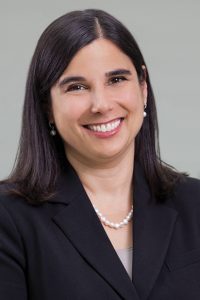 Ana Hooker serves as Senior Vice President of Operations at Exact Sciences Corporation. Ms. Hooker joined Exact Sciences in 2013. Ms. Hooker oversee all laboratory operations. She served as Vice President and Division Manager of Integrated Oncology and Genetics at RUP Laboratories. Ms. Hooker was President of Utah chapter, Clinical Laboratory Management Association (CLMA); National CLMA; Association of Molecular Pathology (AMP); American Society of Clinical Laboratory Science (ASCLS). She holds an MBA from Westminster College and B.S. from Kansas State University.
Ana Hooker serves as Senior Vice President of Operations at Exact Sciences Corporation. Ms. Hooker joined Exact Sciences in 2013. Ms. Hooker oversee all laboratory operations. She served as Vice President and Division Manager of Integrated Oncology and Genetics at RUP Laboratories. Ms. Hooker was President of Utah chapter, Clinical Laboratory Management Association (CLMA); National CLMA; Association of Molecular Pathology (AMP); American Society of Clinical Laboratory Science (ASCLS). She holds an MBA from Westminster College and B.S. from Kansas State University.
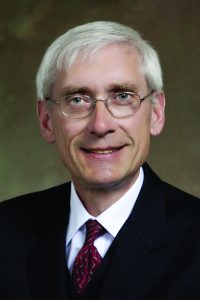 Tony Evers was first elected Wisconsin State Superintendent of Public Instruction in April 2009.Tony has dedicated his life to public education in our state, working with the students, parents, and citizens of Wisconsin for more than 38 years as a teacher, principal, superintendent, and regional administrator. Prior to his election, Tony served eight years as the deputy state superintendent of public instruction.. He has served in schools and lived in communities across Wisconsin, from Tomah to Oakfield, Verona to Oshkosh.
Tony Evers was first elected Wisconsin State Superintendent of Public Instruction in April 2009.Tony has dedicated his life to public education in our state, working with the students, parents, and citizens of Wisconsin for more than 38 years as a teacher, principal, superintendent, and regional administrator. Prior to his election, Tony served eight years as the deputy state superintendent of public instruction.. He has served in schools and lived in communities across Wisconsin, from Tomah to Oakfield, Verona to Oshkosh.
Tony Evers has been married 43 years to his wife Kathy; they met in kindergarten. They are the parents of three adult children, all public school graduates, and have six grandchildren.
AMR: Global Impact on Human and Animal Health Panelists
 Dr. Katie Mrdutt (Mir-due-t) is the Food Armor® Program Manager with the Food Armor® Foundation. Dr. Mrdutt’s responsibilities include educating veterinarians, farmers and industry stakeholders on responsible medication use and antimicrobial stewardship in animal agricul-ture. She earned her Bachelor of Science and Veterinary Medical degrees from the University of Minnesota, graduating in 2011 and is currently pursuing a MBA from the University of Wisconsin Eau Claire. Following graduation from veterinary school she went into private practice with an emphasis on dairy production systems. In July of 2014, she joined the Wisconsin Veterinary Medical Association in her current role. The Food Armor® program transitioned from the WVMA to a standalone non-profit foundation in the fall of 2017, now called the Food Armor® Foundation. She currently resides in Western Wisconsin with her husband, 3 children and their herd of beef cows.
Dr. Katie Mrdutt (Mir-due-t) is the Food Armor® Program Manager with the Food Armor® Foundation. Dr. Mrdutt’s responsibilities include educating veterinarians, farmers and industry stakeholders on responsible medication use and antimicrobial stewardship in animal agricul-ture. She earned her Bachelor of Science and Veterinary Medical degrees from the University of Minnesota, graduating in 2011 and is currently pursuing a MBA from the University of Wisconsin Eau Claire. Following graduation from veterinary school she went into private practice with an emphasis on dairy production systems. In July of 2014, she joined the Wisconsin Veterinary Medical Association in her current role. The Food Armor® program transitioned from the WVMA to a standalone non-profit foundation in the fall of 2017, now called the Food Armor® Foundation. She currently resides in Western Wisconsin with her husband, 3 children and their herd of beef cows.
 Nasia Safdar has been the Medical Director of Infection Control at UW Hospital and Clinics since 2009. She came to Wisconsin in 1997 for her residency and fellowship. She is board certified in infectious disease and she focuses on healthcare-associated infections, particularly in the acute care setting. Dr. Safdar believes that many health care-associated infections can be prevented with adherence to known best practices. As medical director for the department of infection prevention, her job is to lead the department in its mission of reducing healthcare-associated infections by identifying, testing and implementing interventions that have benefit for reducing health care associated infections (HAI).
Nasia Safdar has been the Medical Director of Infection Control at UW Hospital and Clinics since 2009. She came to Wisconsin in 1997 for her residency and fellowship. She is board certified in infectious disease and she focuses on healthcare-associated infections, particularly in the acute care setting. Dr. Safdar believes that many health care-associated infections can be prevented with adherence to known best practices. As medical director for the department of infection prevention, her job is to lead the department in its mission of reducing healthcare-associated infections by identifying, testing and implementing interventions that have benefit for reducing health care associated infections (HAI).
She is an associate professor of infectious diseases at the University of Wisconsin School of Medicine and Public Health and the Associate Chief of Staff for Research at the William S. Middleton VA Hospital. Her research includes the evaluation of novel and innovative strategies for prevention of HAI. She is currently leading the fecal bacteriotherapy program at UW Hospital and is the principal investigator of a current ongoing VA-funded trial of probiotics for reducing HAI.
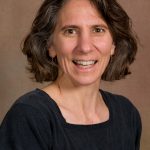 Katrina R. Viviano, DVM, PhD, DACVIM, DACVCP is a Clinical Associate Professor in Department of Medical Sciences at University of Wisconsin-Madison, School of Veterinary Medicine. The clinical challenges presented by antimicrobial resistant infections in companion animals drives her clinical interest in antibiotic stewardship and teaching evidence-based prescribing. After receiving her DVM from the University of Wisconsin-Madison, she completed board-certification as a small animal internist and clinical pharmacologist. Her classical training as a PhD organic chemist serves as her foundation and led to her interest in pursuing a career in academic research, which also impacts the lives of her patients. Other clinical interests include toxicology, immune-mediated diseases, and the role of antioxidants in health and disease.
Katrina R. Viviano, DVM, PhD, DACVIM, DACVCP is a Clinical Associate Professor in Department of Medical Sciences at University of Wisconsin-Madison, School of Veterinary Medicine. The clinical challenges presented by antimicrobial resistant infections in companion animals drives her clinical interest in antibiotic stewardship and teaching evidence-based prescribing. After receiving her DVM from the University of Wisconsin-Madison, she completed board-certification as a small animal internist and clinical pharmacologist. Her classical training as a PhD organic chemist serves as her foundation and led to her interest in pursuing a career in academic research, which also impacts the lives of her patients. Other clinical interests include toxicology, immune-mediated diseases, and the role of antioxidants in health and disease.
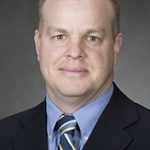 Michael Moll has served as the primary athletic trainer at UW–Madison for a variety of sports including softball, men’s and women’s tennis, women’s basketball and wrestling. From 2003-12 he was an assistant athletic trainer with the football team. From 2012-2017, Moll has served as the Badgers’ head football athletic trainer.
Michael Moll has served as the primary athletic trainer at UW–Madison for a variety of sports including softball, men’s and women’s tennis, women’s basketball and wrestling. From 2003-12 he was an assistant athletic trainer with the football team. From 2012-2017, Moll has served as the Badgers’ head football athletic trainer.
In his role as Assistant Athletic Director of Sports Medicine, Moll will be responsible for developing, coordinating, and administering the overall sports medicine program for UW. He will serve as the athletics’ health care administrator and oversee UW’s athletic health care administration and delivery. That includes directing the development, coordination and delivery of the professional and administrative services essential to the successful implementation of a comprehensive sports medicine program.
Currently the vice president of the Wisconsin Athletic Trainers’ Association, Moll was awarded the WATA Distinguished Service Award in 2007. He is also currently the Wisconsin state representative to the Great Lakes Athletic Trainers’ Association.
Schedule
The Symposium schedule will be updated and augmented as more information becomes available. Check back regularly for the most up-to-date version of the Symposium schedule as the dates approach. Entries in italics pertain to guests staying in Cole Hall only.
Download the full Symposium Program.
Wednesday, June 20, 2018
| 1:00-8:00 pm | Arrival and Check-in at Cole Hall |
| 3:00-5:00 | Faculty Only Meeting & Reception Researchers’ Link |
| 5:00-6:30 | Dinner at Four Lakes Market, Dejope Hall |
| 7:00-9:00 | Welcome Bonfire Picnic Point, Firepit #6 |
Thursday, June 21, 2018
| 7:00-8:00 am | Breakfast at Four Lakes Market |
| 8:00-9:00 | Poster setup at Discovery Building |
| 9:00-9:45 | Welcome
Dr. Jo Handelsman, Director, Wisconsin Institute for Discovery |
| 9:45-10:45 | Panel Session: AMR: Global Impact on Human and Animal Health |
| 10:45-11:00 | Break |
| 11:00-11:30 | Introduction to Smarticles technology: Potential Applications in Antimicrobial Stewardship |
| 11:30-12:30pm | “Tapas Talks” |
| 12:30-2:15 | Lunch and Keynote Address – Aileen Rubio |
| 2:15-4:15 | Poster Session and Competition |
| 4:30-4:45 | Tiny Earth Community Group Photo |
| 5:00-6:30 | Dinner at Four Lakes Market |
| 7:00-9:00 | Music at the Memorial Union Terrace |
Friday, June 22, 2018
| 7:00-8:00 am | Breakfast at Four Lakes Market |
| 8:30-10:30 | Symposium Excursions Departing from Discovery Building:
Group A – Tour of Thermo Fisher Scientific and Conversation with Industry Scientists and Executives Group B – Tour of Catalent and Conversation with Industry Scientists and Executives Group C – Tour of Camp Randall and AMR conversation with UW Athletics (students, administrators, sports medicine staff) Group D – Tour of Exact Sciences and Conversation with Industry Scientists and Executives |
| 11:00-1:30 pm | Biotech and Graduate School Career Fair and Expo in the Discovery Building (lunch included) see below for representing entities |
| 1:30-2:00 | Award Ceremony and Closing Remarks |
| 2:00-5:00 | Checkout (Cole Hall) and Departure |
Tiny Earth inspires students to pursue careers in science by harnessing their curiosity to crowdsource the discovery of new antibiotics, thereby addressing one of the most pressing global health challenges of our century – the diminishing supply of effective antibiotics. Tiny Earth centers around an introductory biology course in which students perform hands-on field and laboratory research on soil samples in the hunt for new antibiotics.
Piloted at Yale University in 2012, within just five years, the network has grown to include more than 250 participating schools across 41 U.S. states, Puerto Rico, and 15 countries. Part of the value of Tiny Earth is its potential impact on increasing the supply of STEM majors to meet workforce demands. The President’s Council on Advisors on Science and Technology (PCAST) and the National Science Foundation (NSF) have stressed the shortage of trained scientists for the future workforce and placed high priority on teaching more research courses such as Tiny Earth. Studies show that taking research courses like Tiny Earth improves students’ grades, increases their confidence, and improves their retention in college and STEM majors; these effects are particularly strong among women and minorities.
The 5th Annual Symposium will bring together hundreds of faculty and students to forge new relationships, share innovative practices, and explore opportunities for future collaboration. The Symposium will take place on June 21-22, 2018 at UW-Madison’s Wisconsin Institute for Discovery. Events include a student poster competition, tapas talks, and a keynote address. Students will also have the opportunity to compete for scientific awards and present their original research at the Annual Symposium.
The 2018 Symposium will offer students and faculty opportunities to engage with Madison’s vibrant biotech community – represented by local, regional, and national life sciences companies intrigued by Tiny Earth’s innovative discovery learning model. In turn, the gathering will offer potential employers a chance to meet some of the country’s most motivated, curious, and well-trained undergraduate STEM students from across Wisconsin, the Midwest, and the rest of the country.
Finally, we are pleased to partner with UW-Athletics to explore the impact of antimicrobial resistance (AMR) on collegiate athletes and athletics. Symposium participants will be able to tour UW-Athletic facilities and hear directly from UW Sports Medicine Staff members about the impacts of AMR.
Sponsorship Levels and Benefits
Event Sponsorships
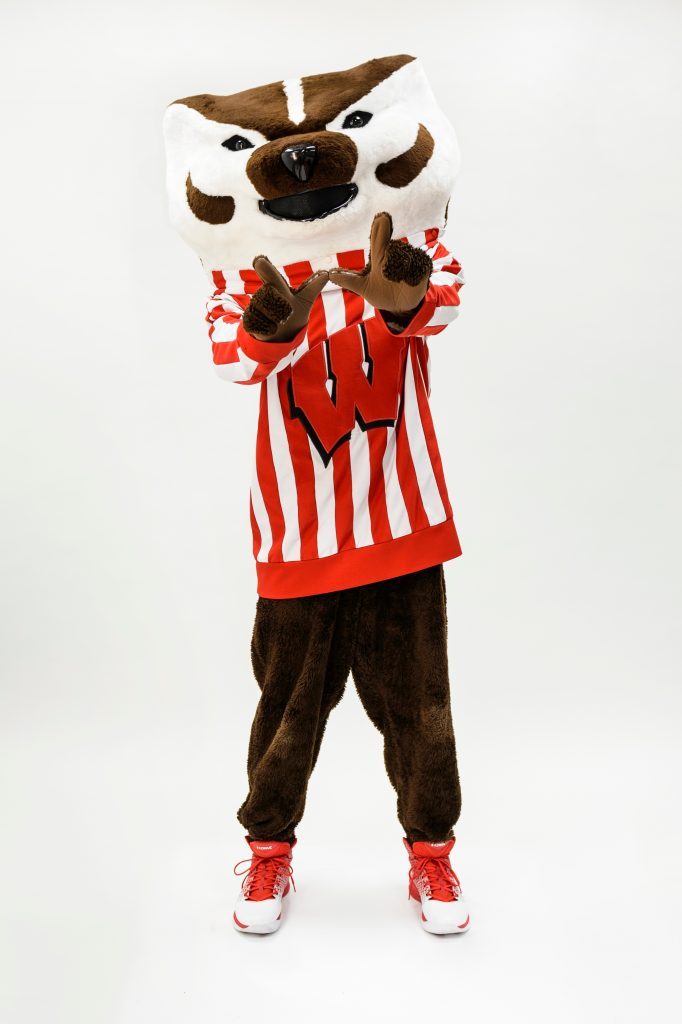
Photo by Jeff Miller/UW-Madison
All sponsorship levels include:
- Logo on event registration form and invitation
- Logo prominently displayed on event signage, program booklet, pre-program PowerPoint
- Recognition by speakers in the program
- Highlighted in pre- and post-event promotion emails
- Featured in Tiny Earth newsletter, reaching nearly 10,000 participants
TITLE $10,000
- Sponsor name included in the symposium title
- Press release issued highlighting the title sponsor, partnership with Tiny Earth and UW-Athletics
- Full-page feature/advertisement in the front of the program book
- Live speaking opportunity to open the program and introduce the keynote speaker
- 5 customized posts featuring your company on a variety of WID social media platforms: Facebook, Twitter, LinkedIn
PLATINUM $5,000
- Sponsor logo printed on front of program book
- Live speaking opportunity to close the program
- Half-page sponsor information & logo in the program book
- 3 customized posts featuring your company on a variety of WID social media platforms: Facebook, Twitter, LinkedIn
DIAMOND $2,500
- Sponsor logo on the program book’s back
- Quarter page sponsor information & logo in the program book
- 2 customized posts featuring your company on a variety of WID social media platforms: Facebook, Twitter, LinkedIn
GOLD $1,000
- Sponsor logo inside front cover of program book
- 1 customized post featuring your company on a variety of WID social media platforms: Facebook, Twitter, LinkedIn
TABLE SPONSOR $500
- Sponsor logo on event signage & program booklet
- Sponsor logo on table
